#The house of mourning
Explore tagged Tumblr posts
Text
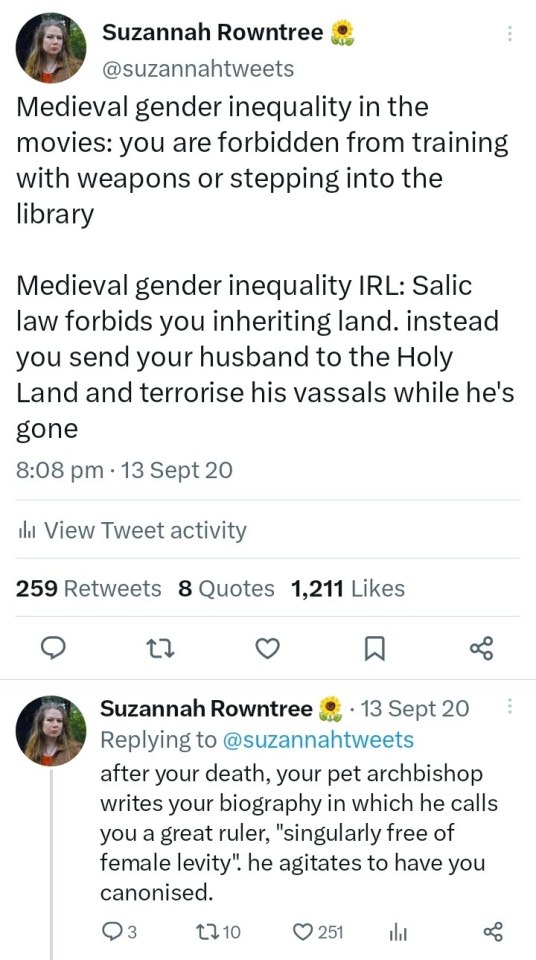
all RIGHT:
Why You're Writing Medieval (and Medieval-Coded) Women Wrong: A RANT
(Or, For the Love of God, People, Stop Pretending Victorian Style Gender Roles Applied to All of History)
This is a problem I see alllll over the place - I'll be reading a medieval-coded book and the women will be told they aren't allowed to fight or learn or work, that they are only supposed to get married, keep house and have babies, &c &c.
If I point this out ppl will be like "yes but there was misogyny back then! women were treated terribly!" and OK. Stop right there.
By & large, what we as a culture think of as misogyny & patriarchy is the expression prevalent in Victorian times - not medieval. (And NO, this is not me blaming Victorians for their theme park version of "medieval history". This is me blaming 21st century people for being ignorant & refusing to do their homework).
Yes, there was misogyny in medieval times, but 1) in many ways it was actually markedly less severe than Victorian misogyny, tyvm - and 2) it was of a quite different type. (Disclaimer: I am speaking specifically of Frankish, Western European medieval women rather than those in other parts of the world. This applies to a lesser extent in Byzantium and I am still learning about women in the medieval Islamic world.)
So, here are the 2 vital things to remember about women when writing medieval or medieval-coded societies
FIRST. Where in Victorian times the primary axes of prejudice were gender and race - so that a male labourer had more rights than a female of the higher classes, and a middle class white man would be treated with more respect than an African or Indian dignitary - In medieval times, the primary axis of prejudice was, overwhelmingly, class. Thus, Frankish crusader knights arguably felt more solidarity with their Muslim opponents of knightly status, than they did their own peasants. Faith and age were also medieval axes of prejudice - children and young people were exploited ruthlessly, sent into war or marriage at 15 (boys) or 12 (girls). Gender was less important.
What this meant was that a medieval woman could expect - indeed demand - to be treated more or less the same way the men of her class were. Where no ancient legal obstacle existed, such as Salic law, a king's daughter could and did expect to rule, even after marriage.
Women of the knightly class could & did arm & fight - something that required a MASSIVE outlay of money, which was obviously at their discretion & disposal. See: Sichelgaita, Isabel de Conches, the unnamed women fighting in armour as knights during the Third Crusade, as recorded by Muslim chroniclers.
Tolkien's Eowyn is a great example of this medieval attitude to class trumping race: complaining that she's being told not to fight, she stresses her class: "I am of the house of Eorl & not a serving woman". She claims her rights, not as a woman, but as a member of the warrior class and the ruling family. Similarly in Renaissance Venice a doge protested the practice which saw 80% of noble women locked into convents for life: if these had been men they would have been "born to command & govern the world". Their class ought to have exempted them from discrimination on the basis of sex.
So, tip #1 for writing medieval women: remember that their class always outweighed their gender. They might be subordinate to the men within their own class, but not to those below.
SECOND. Whereas Victorians saw women's highest calling as marriage & children - the "angel in the house" ennobling & improving their men on a spiritual but rarely practical level - Medievals by contrast prized virginity/celibacy above marriage, seeing it as a way for women to transcend their sex. Often as nuns, saints, mystics; sometimes as warriors, queens, & ladies; always as businesswomen & merchants, women could & did forge their own paths in life
When Elizabeth I claimed to have "the heart & stomach of a king" & adopted the persona of the virgin queen, this was the norm she appealed to. Women could do things; they just had to prove they were Not Like Other Girls. By Elizabeth's time things were already changing: it was the Reformation that switched the ideal to marriage, & the Enlightenment that divorced femininity from reason, aggression & public life.
For more on this topic, read Katherine Hager's article "Endowed With Manly Courage: Medieval Perceptions of Women in Combat" on women who transcended gender to occupy a liminal space as warrior/virgin/saint.
So, tip #2: remember that for medieval women, wife and mother wasn't the ideal, virgin saint was the ideal. By proving yourself "not like other girls" you could gain significant autonomy & freedom.
Finally a bonus tip: if writing about medieval women, be sure to read writing on women's issues from the time so as to understand the terms in which these women spoke about & defended their ambitions. Start with Christine de Pisan.
I learned all this doing the reading for WATCHERS OF OUTREMER, my series of historical fantasy novels set in the medieval crusader states, which were dominated by strong medieval women! Book 5, THE HOUSE OF MOURNING (forthcoming 2023) will focus, to a greater extent than any other novel I've ever yet read or written, on the experience of women during the crusades - as warriors, captives, and political leaders. I can't wait to share it with you all!
#watchers of outremer#medieval history#the lady of kingdoms#the house of mourning#writing#writing fantasy#female characters#medieval women#eowyn#the lord of the rings#lotr#history#historical fiction#fantasy#writing tip#writing advice
30K notes
·
View notes
Text
this heartbreaking segment from the end of The House of Mourning by @suzannahnatters 🤝 Till We Have Faces
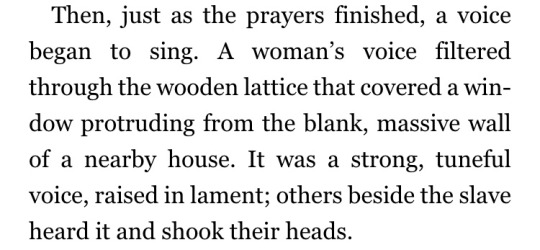
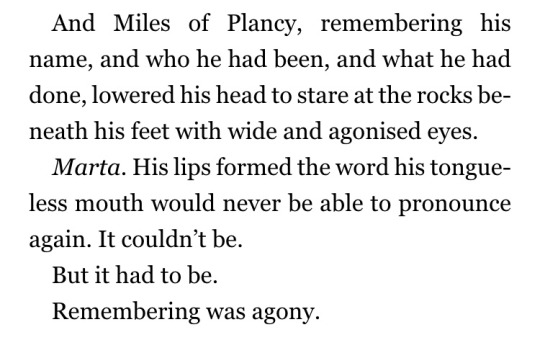

23 notes
·
View notes
Text



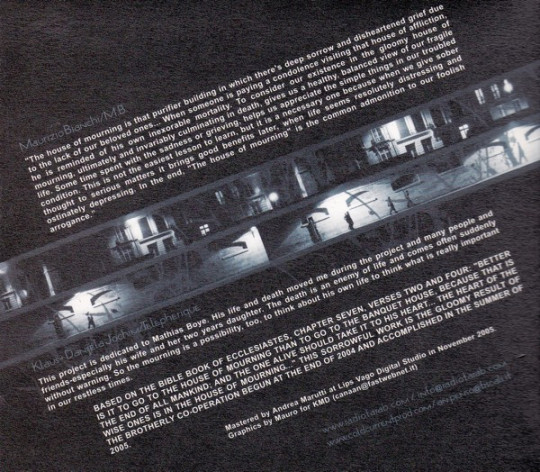

Album Art for:
Maurizio Bianchi & Telepherique - The House Of Mourning (Radiotarab, Cold Current Productions, 2006)
#album art#album covers#cover art#Maurizio Bianchi & Telepherique#The House Of Mourning#Radiotarab#Cold Current Productions#2006
9 notes
·
View notes
Text
Rook, compulsively smashing every urn in sight: yeah they kicked me out of funeral city for political reasons
#dragon age#veilguard#mourn watch absolutely funniest faction. going full gomez-morticia outside a haunted house while harding screams internally#dragon age the veilguard
1K notes
·
View notes
Text
yall remember in canon when kreacher charged into battle against the death eaters yelling about fighting for regulus?
#idk it makes me emotional#i just know regulus was a little sweet boy#his best friend was a house elf#a house elf who loved him long after his death#a house elf who mourned him#regulus black
639 notes
·
View notes
Note
I just saw one of your fave games is What remains of Edith Finch and I’m so happy! I feel like its a lesser known game but i loved playing through it. I’m so happy to know more than just my small friend group know about this game!
Sorry this isn’t a question. Also want to say that you’re art is amazing and the development of the designs is so interesting to see. Also the way you draw intimate scenes have so much emotion to them. I love the Aj and rarity kissing comic so much, you can just feel their love for each other ;w;
Thank you so much!
I highly, highly, highly recommend What Remains of Edith Finch to anyone interested in narrative game experiences/"walking simulators." It's one of those games that was handcrafted with nothing but love. Every room you explore is just... real. The way the light flows in and makes the colors of the living room, the kitchen, the bedrooms glow. Playing the game is like walking through your childhood home as an adult and seeing how the dust clings to everything you once touched. Also genius-level gameplay mechanics, ones that can make you completely empathetic with the character you're embodying or feel completely complacent in their tragedy. It's really not fair to call it a walking simulator because it's so much more and so much smarter than that.Everyone talks about the fish one.
The theme of death and memory and storytelling and the burden of invisible trauma and self-fulfilling prophecies is so affecting too. The ending made me cry.
#detective-marshmallow#ask me#using this ask to seriously plug edith finch#and to talk about spoilers here#major major major spoilers#because i still think about walter. who saw something so awful and traumatic as a kid that he spend the next 40 years living right under hi#family. and everyone forgot about him#i think about the house. literally aching and creaking with the family's history of strange deaths#i think about sam. who had to grow up in an empty bedroom he once shared with his twin brother. and stare at the partitioned-off side#every single day#i think about edith. who knows she will have a child and knows she will die and continue the family curse but decides to live anyways#god edith didn't even make it to adulthood.#this game tears me up from the inside yet it's so full of love and fantasy and hope#it was honestly really helpful for my death anxiety.#don't fear death. one day you'll go. people will mourn. and then they'll tell stories about you.
548 notes
·
View notes
Text

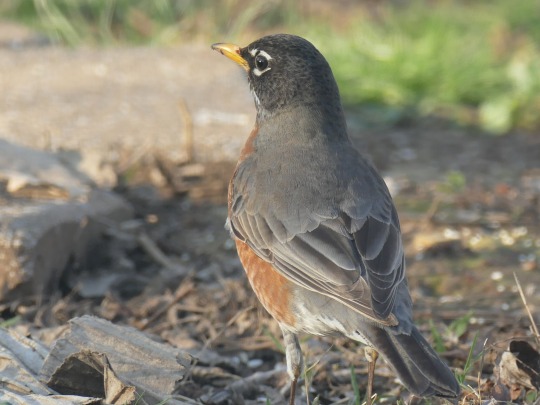
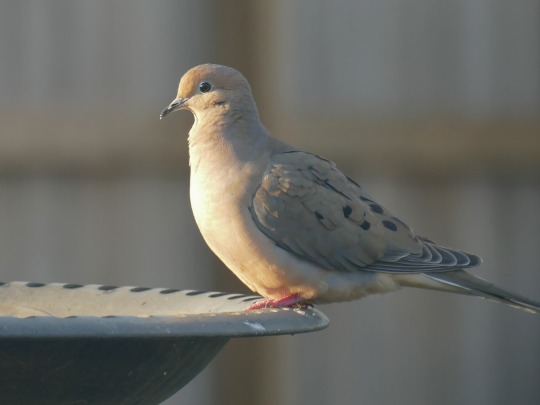

Some backyard birds in the late afternoon sun. Pretty decent lighting.
photos by me. 2024-03-13, Nashville, TN
#birds#birding#birdwatching#birdblr#birblr#american robin#house sparrow#mourning dove#northern cardinal#mine#birb#birbs
946 notes
·
View notes
Text
I had access to an iPad that can use a stylus, so here’s the Toothless doodles! (I’ll get a better iPad someday)


#I love my doodles with a stylus so much#will forever mourn my iPad being old#driving to my friend’s house just to get her ipad#toothless#night fury#httyd#how to train your dragon#doodle
305 notes
·
View notes
Text

Sometimes I see old doodles and I forgot the context. Pretty sure this was a human AU but I forgot if Spinel was adopted, a cousin, or a half sister. And what 'it' were they talking about????
#And I can't tell if I can't remember the context because I didn't actually give it context#I was projecting. It IS kinda funny to spook children. sorry children 😞#Lapis was there to babysit?#Lapis Lazuli SU#She lowkey looks high. Hope she's not actually high during a job if she was babysitting. lol#I mourn every time I remember I don't know how to write Spinel's accent meaning making any comics about her would be super limited. 😭#Technically connverse?#Spinel#Lapis Lazuli#connverse#skedoobles#SU AU#SU human AU#Rose Quartz#Their house would be so pink#my shiz#Steven Universe#Steven Quartz Universe#Connie Maheswaran#Spinel SU#Rose Quartz SU
159 notes
·
View notes
Text

i'm replaying fe3h :) have some dorogrid
#dorogrid#dorothea arnault#ingrid brandl galatea#fire emblem three houses#fe3h#my art#spanish line “eres un cielo ingrid” living rent free in my mind#still mourning the the A support we deserved#but they can kiss all they want in fanart and fanfic
1K notes
·
View notes
Text
one of my favourite weird historical facts is that the Assassins once threatened Saladin by sneaking into his tent and leaving one of their distinctive knives on his pillow, along with two cakes of the bread only they made. "hi, these scones verify that we can kill you. bon appetit!"
(this weird medieval fact brought to you by the House of Mourning line edits, which I am nearly finished!)
67 notes
·
View notes
Text
My full analysis of the Empty House isn't coming quite yet, but I wanted to do something that would... bridge the gap, so to speak.
For one, I tend to avoid The Final Problem sometimes, as it will make me cry(I am a sap, truly), but there is always a part of me that will genuinely appreciate the Empty House.
Let me talk a little about Holmes’s return.
For 1893 England, Holmes’s death was... well, basically one of the single biggest moments in fandom culture since the Pickwick Papers by Charles Dickens came out.
(It is often believed, actually, that the Pickwick Papers, and by extension, all of Charles Dickens works were the first fandom!)
You all know that Victorian England was beside themselves. But there was more than that.
People held actual demonstrations. They frantically wrote to Doyle to change his mind, devastated that Holmes would actually die. They found Joseph Bell, whom Holmes was based off of to try and fill the void. There's accounts that people would dress up as the characters and go on pilgrimages to Reichenbach Falls, as another way to cope.
For Victorian England, with not much to do when they returned home, they were mourning, quite nationally. (And in my research on fandom, Holmes’s death in 1893 was perhaps the first mourning of a fictional character to such a degree.)
And then Holmes returned. While yes, the Hound of the Baskervilles came first, Empty House followed after to explain what had happened, to ease the public.
And as much as Doyle was... bitter about this, Holmes’s return is unusually gentle. He doesn't come in in a blaze of glory, he doesn't loudly declare he's returned, he comes to his oldest and dearest companion(and maybe more?) Watson, to tell him he's back.
And of course, Watson faints. Doyle could have easily had Holmes chastise him, or leave, but instead opts to stay with Watson, to bring him back from fainting, and apologize.
And I think that level of detail is... one not often noticed.
Lastly, I love the different adaptations of the Empty House, because they inject their own gentleness to it.
Granada Holmes goes for a hug, and tenderly brings Watson back to consciousness. Soviet Holmes gently tells Watson(and Mrs. Hudson) that he's back, and hugs them both. And so on.
And it's brilliant.
#sherlock holmes#sherlock holmes analysis with clear#the adventure of the empty house#seriously the letters from the time period are wild#But it was literally a nation in mourning#acd canon#acd holmes#acd watson#granada sherlock#granada watson#soviet sherlock holmes#soviet john watson
129 notes
·
View notes
Text


#the way my heart is doing things#he's having a moment#remembering the gayness that once was#he mourns it just like we all do :'(#and to think these happened only months apart#cm punk#drew mcintyre#punkintyre#house show
108 notes
·
View notes
Text
When I was younger, we had a clock in the garage that would sing bird calls every hour, instead of chiming or ticking or the regular things clocks do. (......I am fairly sure it was exiled to the garage by my mother, who hated the hollow, tinny sound of it.) Anyway, I mostly remember that clock because the mourning dove call was so distinctive---twoo, twoo, too too too, too too too. I can shut my eyes and hear that song, and it taught me to identify it with unerring precision, even though I couldn't pick out another birdcall to save my life.
To this day, mourning doves are one of my favorite birds. and when I caught sight of one perched delicately on my bird feeder I lost my ever loving mind and will take it as a sign of good things to come.
#they are so beautiful!! grey ladies!!!#sad and lovely and stately and flighty I love them!!!!!!!!!#I know it's very nerdy to get hyped over a bird but counterpoint: I have lost count of the sparrows#that eat at my bird feeder.#there are maybe 1-2 female house finches; 1 male cardinal; 1 female cardinal; 2 squirrels; 1 robin#AND ONE MOURNING DOVE I LOVE HER!!!
475 notes
·
View notes
Text

you are not what you seem.
#me#I am my own house of mourning#this is inevitable#i was an angel#gothic#poetic#dark photography#mine#aesthetic#rot in my core#collection#southern gothic#grunge#ethel cain#inspired#photography#house of horror#eerie#witch#witchcore#ruralcore#vintage#old portrait#decay#envy
138 notes
·
View notes
Text
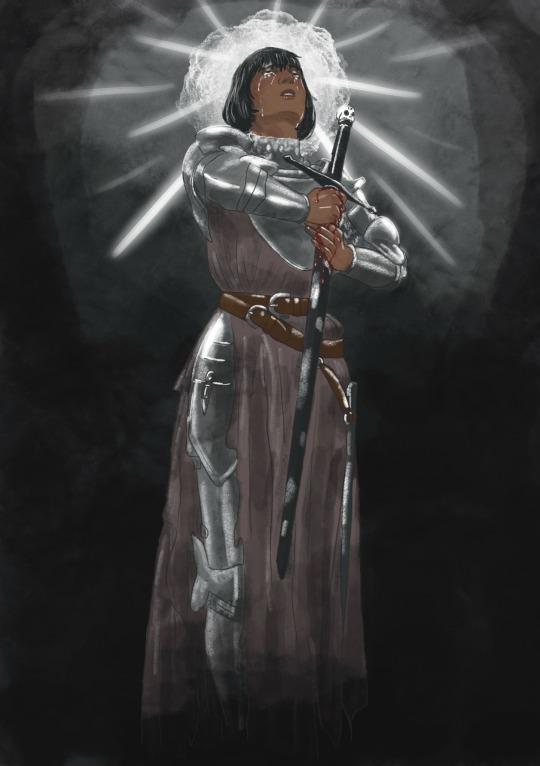
If Cam kept Gideon’s swords
(I feel we don’t talk enough about how she loved Gideon and how hard it must’ve been for her)
#the locked tomb#gideon the ninth#gideon nav#ninth house#camilla hect#sixth house#cam of arc#mourning three besties at once
82 notes
·
View notes